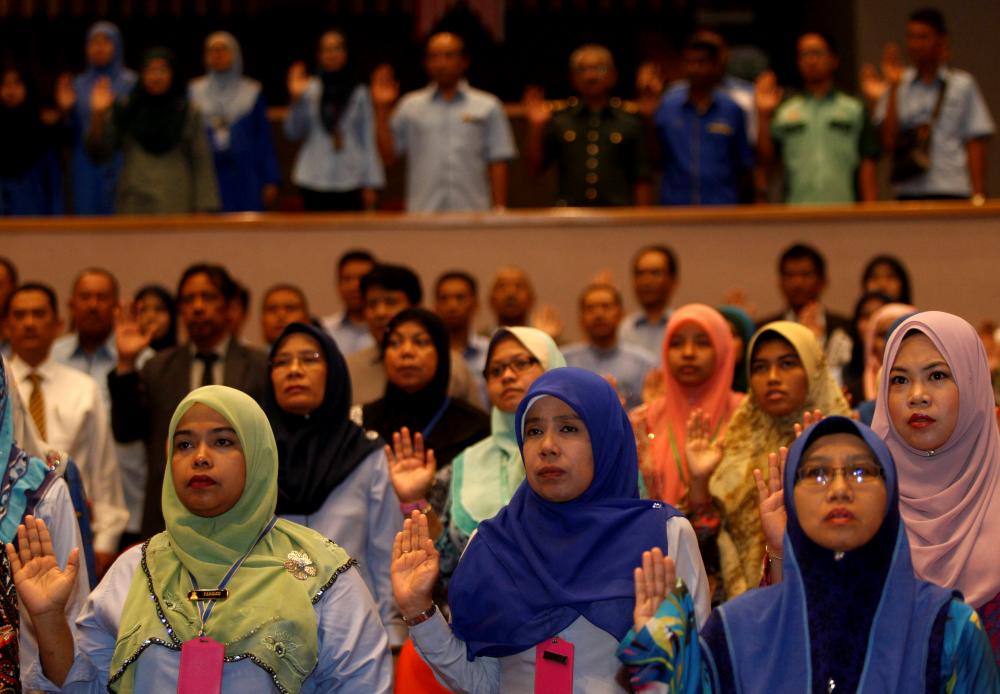AS the world changes, the civil service of Malaysia too must change in tandem if it is to remain competitive and progressive.
In the context of the Malaysian public sector, efficiency in public service delivery and productivity have constantly drawn attention as a national issue. In this regard, adaptation strategies and policy responses are urgently needed.
In 2023 the government, through the Public Service Department (PSD), conducted a study on the Public Service Remuneration System (PSRS) that focuses on sustainability of remuneration, and development and management of organisation to replace the Malaysian Remuneration System, which was implemented in 2002.
To ensure that the PSRS is inclusive, comprehensive and based on the premise of “leave no one behind”, the PSD adopted a “whole of civil service” approach to gather feedback and suggestions from all civil servants throughout Malaysia. It also held engagement sessions with various stakeholders in the public sector to improve the existing remuneration system. This process of developing and formulating the PSRS reflects the government’s values and principles of transparency.
PSRS is one of the government’s initiatives to reform the public service towards achieving the goals and agenda of Malaysia Madani.
One of the key highlights of the PSRS is to review the salaries of civil servants across all schemes and grades.
At a time when all countries in the world, including Malaysia, are struggling to cope with various challenges and socioeconomic situations, especially with the rising cost of living and increasing price of goods, the introduction of the PSRS is timely.
The announcement by the prime minister recently on the PSRS, which among other things, involves the adjustment of civil servants’ salaries of between seven to 15%, was highly anticipated by all civil servants.
The PSRS will be implemented in phases starting with the first phase on Dec 1, followed by the second phase in 2026.
However, the PSRS is more than just a salary adjustment for civil servants. The prime minister also placed great emphasis on the importance of increasing the quality of public service delivery.
Therefore, PSRS has been formulated as a performance-based system to optimise resources, increase work productivity, ensure effective human capital management and development, enhance leadership and good governance, and improve service delivery.
One of the milestones of PSRS is the revision of the minimum entry qualifications into the civil service. Cuepacs (Congress of Unions of Employees in the Public and Civil Services) welcomes this aspect, and it indirectly reflects the advancement and educational achievements of the people in the country.
Higher educational attainment of civil servants at the entry-level will elevate the overall image and dignity of the civil service.
PSRS at the federal level is expected to have a spillover effect at the state level. Following the announcement on PSRS, the menteri besar of Selangor announced that Selangor would also follow in the footsteps of the federal government in reviewing the salaries of the civil servants in the state by adopting the PSRS model and framework. This move demonstrates alignment and harmonisation of the policy that will streamline as well as maintain consistency and uniformity in public services across different levels of government.
Though the outcome is yet to be seen, PSRS will have a positive impact on the 1.6 million civil servants and attract as well as retain the best talent in the civil service because the new remuneration system will almost be on par with the private sector.
Therefore, civil servants should reciprocate by committing and dedicating to increase efficiency and productivity in the service delivery as a sign of appreciation to the government.
One way for civil servants to boost productivity in public service delivery is to equip themselves and leverage on artificial intelligence technology.
The increase in quality of service will require the government to take the necessary steps to improve existing work processes, rules and regulations and client charter so that the people’s needs can be met and fulfilled.
At the organisational level, a directive was recently issued to all ministries and government departments to set up a Service Delivery Improvement Monitoring Committee (SDIMC).
The establishment of SDIMC aims to strengthen efforts in enhancing good governance in the system of managing public service delivery.
Ministries and government departments are required to submit a service delivery performance report to PSD on a quarterly basis.
As a monitoring mechanism, SDIMC is expected to ensure that improvements in the quality of service delivery can be achieved.
The SDIMC initiative will support the government in its quest to promote good governance and administrative efficiency.
The government has to operate as one, be fully committed to improving the lives of the people.
With the SDIMC initiative and the positive effects on the service delivery system, it is anticipated that the people’s trust toward the government will further increase over time.
The writer is the deputy head of the Centre for Public Policy, Project Management and Governance Studies, National Institute of
Public Administration. Comments: letters@thesundaily.com









